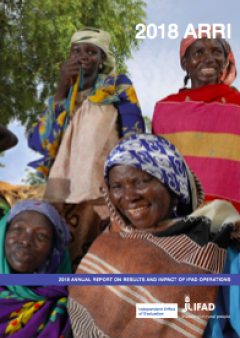

Documents
Member's Documents
This study was requested by the Board Effectiveness and Efficiency Group, following the implementation by the Bank of a pilot, which increased the EBRD’s delegated authority threshold from €10 million to €25 million. On the completion of this pilot, the increased threshold became the Bank’s…
Member's Documents
The EBRD’s 2010 Property Strategy was strongly shaped by the financial crisis of 2008, which hit the Property and Tourism sector (P&T) particularly hard. “Crisis response” was an immediate and dominant operational priority. Longer-term, the Strategy’s objectives were limited to a…
Member's Documents
Lending through financial intermediaries, widely known internally as “credit lines,” has been a significant part of the Bank's operations since its inception. Credit lines have allowed it to reach larger numbers of smaller borrowers than possible through direct lending, and alongside…
Member's Documents
The transport sector is a key enabler of economic growth and transition in the region and investment in the sector has been central to the Bank’s strategy and operations since its inception in 1992. This is a review of the Bank’s 2013 Transport Sector Strategy and resulting operations; it is…
Member's Documents
Mobilizing private capital has been central to the Bank’s core transition mandate since its founding, and to achieving major recent institutional commitments such as supporting the SDGs, climate resilience, and inclusion. Significantly greater private investment, both domestic and foreign, is…
Member's Documents
The 2018 Annual Report on Results and Impact of IFAD operations (ARRI) presents a synthesis of IFAD’s performance and highlights results and systemic issues from independent evaluations conducted in 2017. The quantitative analysis draws on ratings from 320 evaluations conducted since 2002.
Document Type:
Filter By Member:
- (-) Independent Evaluation Department, European Bank for Reconstruction and Development (97)
- (-) Independent Office of Evaluation, International Fund for Agricultural Development (63)
- Office of Evaluation and Oversight, Inter-American Development Bank (117)
- Independent Development Evaluation, African Development Bank (78)
- Independent Evaluation Department, Asian Development Bank (48)
- Evaluation (EV), European Investment Bank (40)
- Independent Evaluation Group (IEG), World Bank Group (37)
- Independent Evaluation Department, Islamic Development Bank (25)
- Independent Evaluation Office of the International Monetary Fund (17)
- Independent Evaluation Office, Global Environment Facility (9)
- United Nations Evaluation Group (UNEG) (7)
- OECD-DAC Evaluation Network (1)
